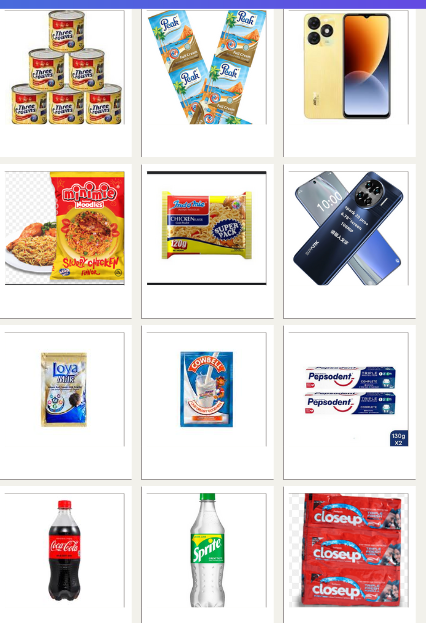In Nigeria’s fiercely contested consumer market, rival brands do not always fight the brand wars, instead, the competition happens under the same roof.
This intriguing phenomenon, known as “sister brand rivalry,” sees products from the same parent company vie for the attention, loyalty, and wallets of the same consumers.
Manufacturers have launched multiple brands in the same segment, from dairy aisles to mobile shelves. While the tactic might seem counterintuitive, it allows companies to expand market coverage, appeal to diverse consumer needs, and occupy more shelf space than any single brand could manage alone.
Also Read:Leveraging sports marketing as goldmine for brands seeking fan allegiance
FrieslandCampina WAMCO Nigeria provides one of the most visible examples on Nigerian shelves through the rivalry between Peak Milk and Three Crowns Milk. While Peak carries the image of the heritage and premium brand, Three Crowns positions itself as the heart-healthy alternative targeted at mothers and weight-conscious consumers.
Despite coming from the same stable, their marketing and pricing strategies present them as competing forces in the dairy market.
In the toothpaste category, Unilever Nigeria pits Close-Up and Pepsodent against each other in a battle for dominance. While Close-Up appeals to a youthful, energetic crowd with gel-based variants, Pepsodent leans on dentist-backed trust and family hygiene to build a clean-cut, clinically sound brand tone.
Also Read:Brands that rule Lagos traffic market
Each attracts a different subset of oral care consumers, even though the profit flows into the same Unilever pipeline.
In the instant noodle space, Dufil Prima Foods places both Indomie and Minimie Noodles on store shelves. While Indomie maintains its dominance with classic chicken and onion flavours, Minimie carves out its own following by targeting the youth with vibrant flavours like tomato and vegetable, and by packaging its offerings in fun-size variants.
This internal rivalry allows Dufil to retain both mature loyalists and trend-seeking younger eaters.
Also Read:WARC new forecasts show ad market set to reach £45.2bn, £47.8bn in 2 years
The tech world also plays this game through a three-pronged brand strategy with Tecno, Infinix, and itel. While Tecno attracts photography lovers and mid-range buyers, Infinix appeals to trendy, tech-savvy youth, and itel captures entry-level consumers who seek affordability.
Though these brands often appear to clash in ads and retail channels, they collectively help Transsion secure over 50% of Nigeria’s smartphone market.
Globally, the same principle applies. Procter & Gamble runs Tide and Gain as two heavyweights in the laundry detergent space. Tide leans into stain-fighting and performance, while Gain draws users in with its strong fragrance game.
Also Read:Amber energy team eases Lagos traffic congestion
Cowbell and Loya milk are also another sister brand that have continued to make indelible impression in Nigeria market, each standing on its own shelve boldly and active.
Similarly, in the hair care segment, P&G lets Head & Shoulders and Pantene chase different consumer aspirations with anti-dandruff credibility versus beauty and hair strength.
Coca-Cola also balances Coke’s fame with Sprite’s zest, keeping both at the top of the carbonated drink category. While their flavours differ, their brand campaigns often clash head-on for the same thirsty audience, especially in outdoor and retail channels.
Also Read:How brands and government can market the priceless value of peace
Consumers may not notice this “sibling rivalry,” but brand managers treat it as a calculated play. By fielding more than one horse in a race, companies hedge against consumer shifts, preempt competitor intrusion, and foster internal innovation.
The rivalry may be sisterly, but make no mistake, it remains war on the shelf.
ALSO: MARKETING EDGE ONTV






Comment
No comments found.